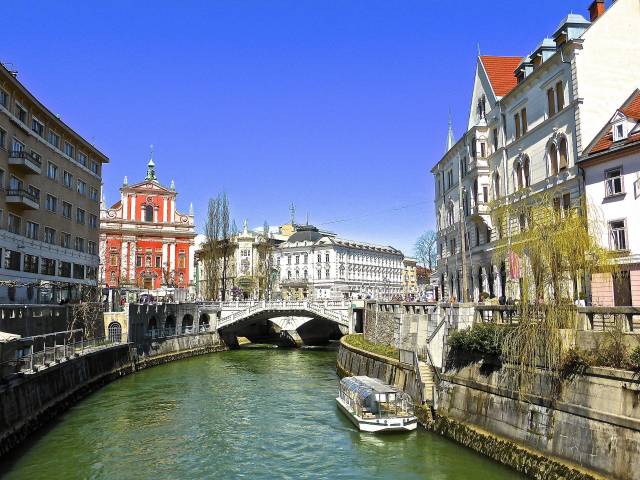What we do with our waste matters. In Europe, much of what is collected for recycling is being shipped to other countries, where it becomes somebody else’s problem. But what if waste collection challenges could be turned into local opportunities? That’s what is being done in Slovenia, where cities like Ljubljana are pioneering mostly local material loops which transform waste into locally useful products, while also saving the environment and creating jobs. This is what circular economy is really about.
CCD signatory Ljubljana was the first European capital to commit to zero-waste, and it now enjoys one of the highest shares of separately collected waste in Europe (69.5%). This separated collection provides the starting point of the Municipal Material Cycle, an initiative which Ljubljana joined in 2015 to transform waste beverage cartons collected from households and institutions in the city into essential paper hygiene products, including tissues, paper towels, and toilet paper, for use in the same local institutions and communities where the waste was generated.
In many parts of Europe, cartons are used for drinks, milk, yogurt and other liquid foods. Cartons have some advantages over other packaging, including their light weight which reduces transport emissions, however, they are also difficult to recycle because they are made from multiple layers of different materials glued together. Cardboard made from cellulose fibers make up around 74% of the beverage carton, while polyethylene, which is added to protect the packaging from moisture, makes up the other 22%. A thin layer of aluminum foil is also added as protection.
To tackle this tricky waste stream, the Municipal Material Cycle brings together the main stakeholders in the city, including the municipality, the publicly-owned waste collection company, manufacturers and distributors of paper hygiene products, who work together to collect used beverage cartons, to use these as a source of cellulose in paper manufacturing, and to return this as a recycled product to public institutions in the city, including schools, kindergartens, cultural institutions and other municipal buildings, thereby completing the cycle.
The environmental impacts of the scheme since it began in 2015 have been measured, and as of March 2021, the following has been achieved:
- 15,117,815 used beverage cartons have been recycled (529 tonnes)
- 6,887 trees saved, or 27,543m2
- 430,268 tonnes of CO2 saved
As of March 2021, 41,5% of hygienic paper consumed by the City of Ljubljana now comes from recycled beverage cartons. By 2022, Ljubljana wants to achieve 55% of supply.
Beyond the capital, Municipal Material Cycle’s are now successfully operating in nine other Slovenian municipalities: Novo mesto, Brežice, Mirna Peč, Žužemberk, Dolenjske Toplice, Škocjan, Šentjernej, Straža, Šmarješke Toplice. This covers over 380,000 residents, or 18.5% of the Slovenian population. In total, the Municipal Material Cycle scheme has saved 8,859 trees through the recycling of 681 tonnes of beverage cartons, saving 553,429 kg of CO2 emissions (the equivalent of over 1,200 barrels of oil).




